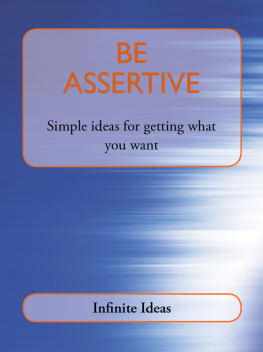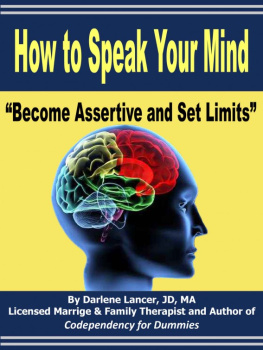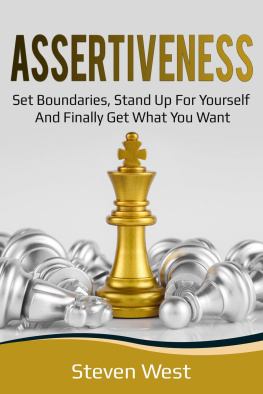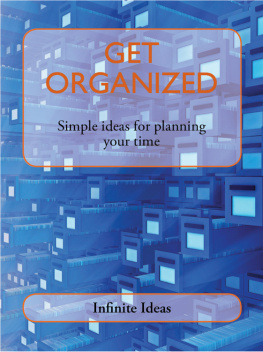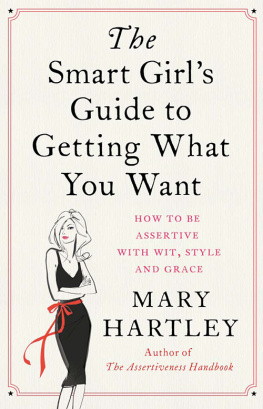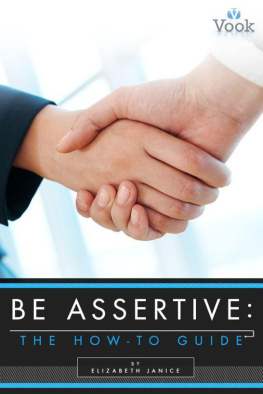Copyright information
First published in 1997 by David Grant Publishing; revised and updated edition published 2012 by
Infinite Ideas Limited
36 St Giles
Oxford
OX1 3LD
United Kingdom
www.infideas.com
All rights reserved. Except for the quotation of small passages for the purposes of criticism or review, no part of this publication may be reproduced, stored in a retrieval system or transmitted in any form or by any means, electronic, mechanical, photocopying, recording, scanning or otherwise, except under the terms of the Copyright, Designs and Patents Act 1988 or under the terms of a licence issued by the Copyright Licensing Agency Ltd, 90 Tottenham Court Road, London W1T 4LP, UK, without the permission in writing of the publisher. Requests to the publisher should be addressed to the Permissions Department, Infinite Ideas Limited, 36 St Giles, Oxford, OX1 3LD, UK, or faxed to +44 (0) 1865 514777.
A CIP catalogue record for this book is available from the British Library
ISBN 9781908474001
Brand and product names are trademarks or registered trademarks of their respective owners.
Welcome!
About Be assertive!
Is this book for me? Being assertive does not mean being aggressive, nor does it mean bottling things up. Assertive people tend to be:
- less stressed;
- more confident;
- good at dealing with others;
- better members of a team.
Be assertive! is for anyone who would like to make more of an impact, and take greater control of their own lives. Assertiveness is a very positive asset. Being assertive means feeling good about yourself and looking after your own interests as well as those of others. It is about having a say in the direction you are taking rather than being at someone elses beck and call. It is also about being more self-confident, standing up for your own point of view and valuing your own judgements. People with assertiveness skills can:
- present their views more confidently and have their voices heard;
- deal more effectively with aggressive people;
- get things done their way and earn greater respect.
This book is certainly for you if you find that:
- people always seem to walk all over you;
- your ideas are seldom heard;
- you find it difficult to deal with bullies (be it the boss, colleagues, neighbours or members of the family);
- you always go along with others anything for a quiet life;
- you always shy away from conflict situations;
- you put up with sub-standard service.
Does any of this feel familiar? If so this quick, no-bull guide to being assertive is just what you need. Read on.
How to use this book
A key message in this book is its OK to skim. You dont have to read it all at once, or follow every tip to the letter. Be assertive! has been written to dip into, so feel free to flick through to find the help you most need. It is a collection of hands-on tips that will help you stand up for your rights in a more positive way. You can learn the skills you need to make a bigger impact on those around you quickly and effectively. The only question that remains is whether the world is ready for the new you!
You will find that there are a few features used throughout the book.
You?
This means Something to think about it sets the scene and identifies the problems by prompting you to think about situations which will instantly feel familiar.
Act!
With the problem diagnosed, these features give you an action plan this will help you to get your own ideas in order.
Tips
This feature appears at the end of each chapter. It is a checklist which condenses all of the advice given throughout the chapter. Similar features appear within chapters which are overflowing with practical, ready to use advice!
If youre really pushed for time, you can always flick to the tips features at the ends of chapters these are also a useful reminder when you come back to look at this book in the future.
Good luck!
1. Assertiveness what it is and is not
Whats in this chapter for you
- What being assertive means to you
- How assertive are you now?
- What assertiveness is not
- Why learn to become more assertive?
- Knowing aggressive behaviour when you see it
- Ten basic assertiveness skills.
I used to think that being assertive meant being more aggressive.
Chris Taylor, buyer
This is a common mistake to make. Assertion and aggression sound similar, and are often confused. Yet they could not be more different.
You?
Think of people you know who are assertive. What makes you think of them as assertive?
What being assertive means to you
Now I see that being assertive means standing up for myself and being more self-confident it doesnt mean rubbing people up the wrong way.
Chris Taylor
Being assertive is all about self-worth. Its about making your own views clear and your voice heard. But it does not mean doing things at other peoples expense. You do not need to be pushy, aggressive, or a bully to be assertive. Assertiveness is not about I win, you lose. Its about I win, but you win too (or at very least the other person doesnt lose out). Assertiveness involves negotiating terms that you and others find acceptable. This means standing up for yourself without losing your temper, putting the other person down, or making them feel that they have lost in some way.
Act!
Use time as an ally.
- Dont be dragooned into giving an instant response to a request. Buy time. Say: Im not sure about this please give me some time to think it over and Ill get back to you very soon. This gives you a chance to gather your thoughts, true feelings and arguments.
- If someone is being very aggressive towards you, say the most honest thing you can, but calmly and politely. Try this: I can see that youre very agitated at the moment lets talk later.
How assertive are you now?
A bit of self-analysis is always a good starting point.
Red Pearson, trainer
You?
How assertive are you? To answer this question, you have to be honest with yourself and perhaps accept that you have hang-ups. Most of us do.
Take a few moments to look at these statements. Give yourself a score from 1 to 5 for each one to show how appropriate they are to you 1 = no way, Jos, 2 = not really, 3 = sometimes, 4 = fairly often, and 5 = yep, thats me.
- I find it embarrassing when people pay me a compliment.
- I hate telling other people they are wrong.
- I feel that other people take advantage of me.
- I would rather have a quiet life than stand up for myself.
- I am afraid to argue with the boss or people in authority.
- I do not speak out in meetings.
- I feel slighted or overlooked.
Add up your scores. If yours is over 20, the chances are that you could certainly benefit from being more assertive. And remember, it is something you can learn to do. Look again at the statements by learning assertiveness, you also learn to:
- accept compliments (and criticism);
- tell people bad things about themselves;
- express your opinions and have them respected;
- stand up to the boss without being aggressive;
- feel more of an equal partner with your colleagues.
Act!
Take a typical problem situation and imagine how you could act differently.
- If you find something very difficult to say, be honest. Start with: Im finding this very hard to say, so youll have to excuse me, but

